Law Firm Marketing: Facebook is Top Spot for Display
Facebook has clinched the top place for online advertising as the social media giant has captured 23 percent of all Internet display ads, resulting in 297 billion ad impressions, which is higher than the total of all display ads on Google, Microsoft, Fox and Yahoo sites combined.
The astounding numbers, wallet-friendly prices and Facebook’s ability to target specific audiences have catapulted Facebook to the number 1 position for display ads. Yahoo came in second with 140 billion display ad impressions, followed by Microsoft at 64 billion and Fox Interactive Media at 48 billion. Google came in last at 35 billion ad impressions, according to the ComScore third quarter report.
So what sets Facebook apart from the other Internet publishing sites? Three things: socializing, price and Facebook’s ability to target its audiences. People spend an average of 700 billion minutes a month on the social networking site, and with over 500 million active users, the potential consumer impressions can be tremendous.
“Facebook’s increasing share of the display ad market probably resulted from the company’s fast-growing audience size, an increase in the number of ads per page that Facebook delivers and an increase in the amount of time that users spend on its website. The more people in your social network that are online, the more value it creates to you as a user, the more you are likely to engage and contribute,” stated comScore’s Andrew Lipsman.
Facebook online display ads sell at a big discount when compared to sites like Yahoo and Microsoft. The CPM (cost per thousand impressions) for Facebook’s U.S. display ads runs at about $1, compared to a $3 CPM for display ads on U.S. Yahoo sites. The discounted pricing is appealing for people who are looking to make a big impression on a small budget.
Facebook also has a unique feature that allows the social network to target the exact demographic they are looking for. The age, sex and interests all factor into what ads will appear on user’s Facebook pages, which ensures your ad will be seen by the right audience.
Facebook is an ideal place for law firms who are looking to get more “bang for their advertising buck.” Not only can your law firm save a little bit of cash while still achieving a high dollar audience reach. But, remember, keep the ads engaging and “worth the look” for consumers; generation Y are heavy users of Facebook and your attorney’s potential clients.
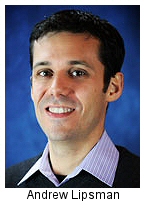 From JusticeNewsFlash.com
From JusticeNewsFlash.com.gif) The following chart is from the 2011 Salary guide published by
The following chart is from the 2011 Salary guide published by 
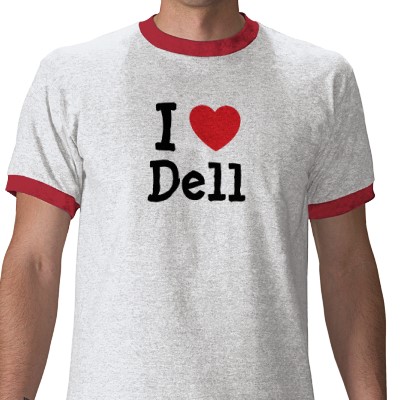 Based on a call I just made, I can say that Dell's customer service is excellent.
Based on a call I just made, I can say that Dell's customer service is excellent. .jpg) Excerpted from
Excerpted from  Mark your calendar for January 19-21 to attend the
Mark your calendar for January 19-21 to attend the 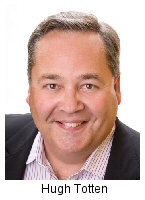 In this white paper, Hugh Totten, co-founder of the pioneering Valorem Law Firm in Chicago, describes how lawyers can attract new business and keep current clients by offering them "AFAs" or value billing. Nearly every law firm offers alternative fees, and this program will show you how to set them successfully.
In this white paper, Hugh Totten, co-founder of the pioneering Valorem Law Firm in Chicago, describes how lawyers can attract new business and keep current clients by offering them "AFAs" or value billing. Nearly every law firm offers alternative fees, and this program will show you how to set them successfully. This is from Tom Kane's
This is from Tom Kane's 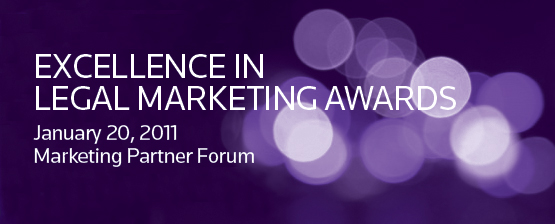 Hubbard One and The Hildebrandt Institute are looking for the most innovative marketing professionals and projects in law firms and corporate law departments for The Excellence in Legal Marketing Awards.
Hubbard One and The Hildebrandt Institute are looking for the most innovative marketing professionals and projects in law firms and corporate law departments for The Excellence in Legal Marketing Awards. LexisNexis has launched the “LexisNexis Ultimate Law Firm Marketing Makeover” contest — an opportunity for small law firms across the United States to expand and enhance their online presence for greater visibility and drive more prospects to their firm. Contest entries are now being accepted online at
LexisNexis has launched the “LexisNexis Ultimate Law Firm Marketing Makeover” contest — an opportunity for small law firms across the United States to expand and enhance their online presence for greater visibility and drive more prospects to their firm. Contest entries are now being accepted online at 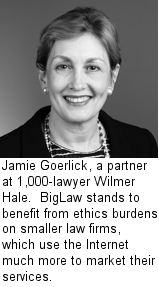 From Law.com
From Law.com


